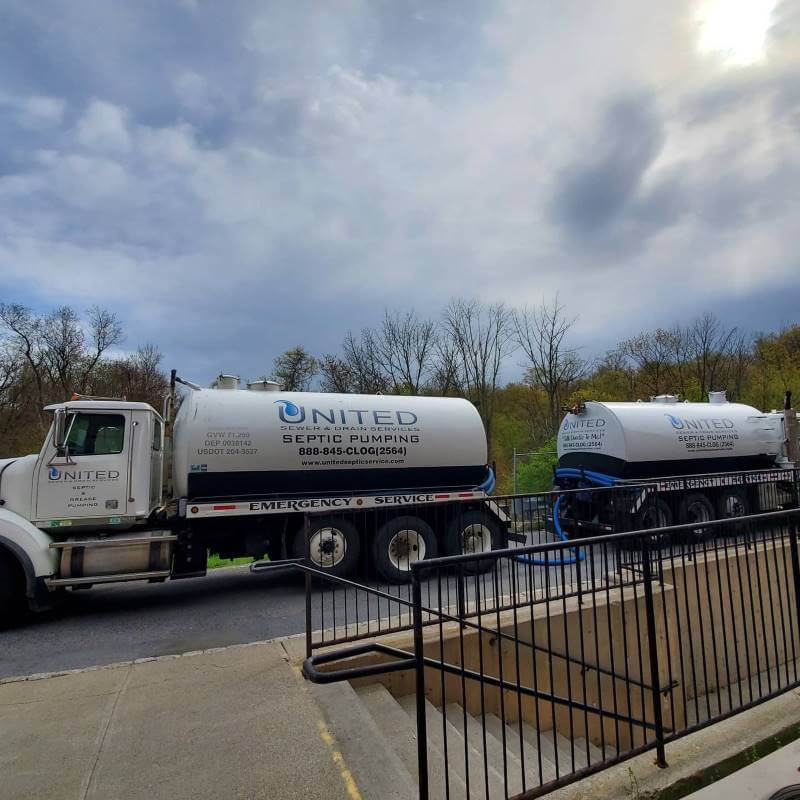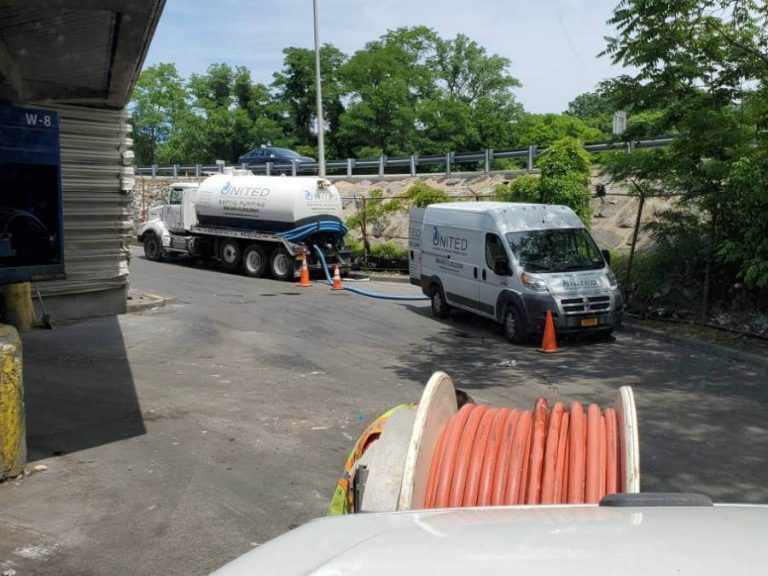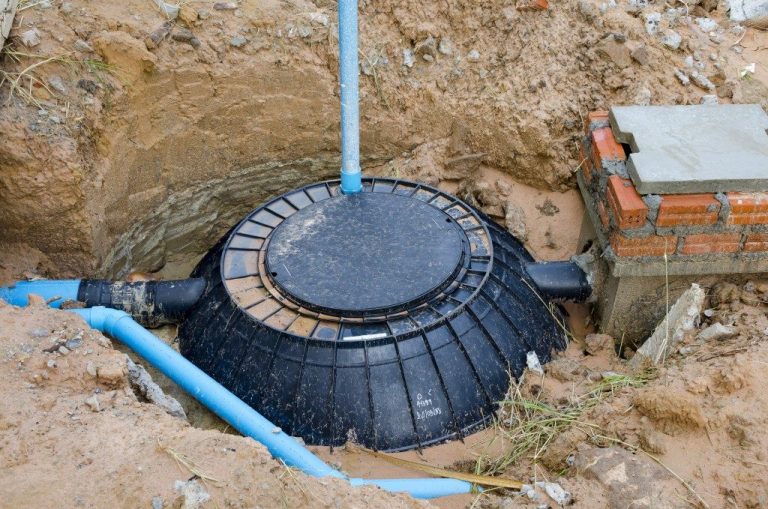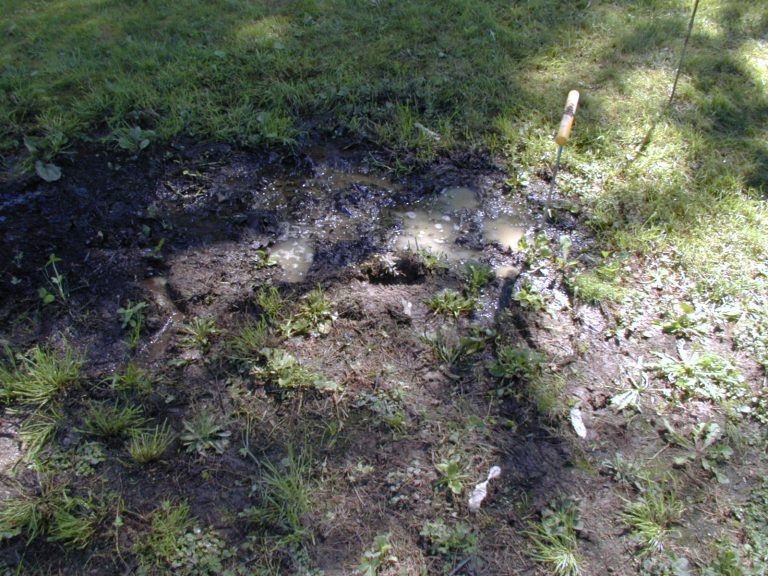Extending the Lifespan of Your Septic System: Remarkable Benefits
Extending the lifespan of your septic system is achievable with proper care and maintenance. Homeowners in Middletown, New York can significantly increase the longevity of their septic systems by following a few key practices. Let’s explore practical ways to keep your septic system running smoothly for years.
Table of Contents
Key Takeaways:
- Regular pumping every 3-5 years is crucial for septic system health
- Water conservation reduces strain on the system
- Proper waste disposal prevents clogs and damage
- Landscaping choices impact drain field functionality
- Professional inspections catch issues early
- Middletown’s climate requires specific maintenance considerations
The Importance of Extending the Lifespan of Your Septic System
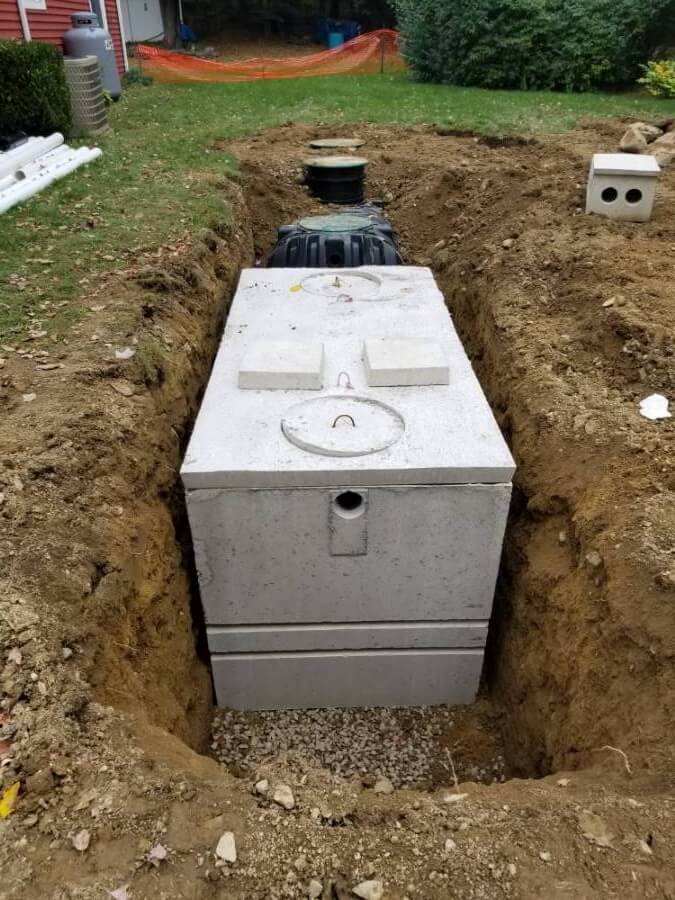
One of the most effective ways to extend your septic system’s lifespan is through regular pumping. In Middletown, where many homes rely on septic systems, this practice is especially important. Pumping removes accumulated solids from the tank, preventing them from entering and clogging the drain field.
How often should you pump?
The frequency of pumping depends on several factors, including household size and water usage. For most Middletown homes, pumping every 3-5 years is a good rule of thumb. However, larger families or homes with high water usage may need more frequent pumping.
Signs it’s time to pump
Don’t wait for problems to arise before pumping your tank. Watch for these indicators:
- Slow-draining sinks and toilets
- Gurgling sounds in pipes
- Wet or smelly areas in the yard near the drain field
- Sewage backups in the home
Addressing these signs promptly can prevent more serious and costly issues down the line.
Water Conservation: Extending the Lifespan of Your Septic System
Reducing the amount of water entering your septic system is a simple yet effective way to extend its life. In Middletown, where water conservation is becoming increasingly important, this practice serves a dual purpose.
Easy water-saving tips
Implementing these strategies can significantly reduce water flow to your septic system:
- Fix leaky faucets and running toilets promptly
- Install low-flow showerheads and faucet aerators
- Use high-efficiency washing machines and dishwashers
- Spread out laundry loads throughout the week
By reducing water usage, you’re giving your septic system more time to treat wastewater effectively, reducing strain on the drain field.
Proper Waste Disposal Practices
What goes down your drains has a direct impact on your septic system’s health. Middletown residents should be mindful of what they flush or pour down sinks to avoid damaging their systems.
Items to keep out of your septic system
Avoid disposing of these items in your septic system:
- Cooking grease and oils
- Coffee grounds
- Disposable wipes (even those labeled “flushable”)
- Feminine hygiene products
- Harsh chemicals and cleaning products
These items can clog pipes, kill beneficial bacteria in the tank, or create a buildup that’s difficult to remove.
Septic-safe alternatives
Opt for septic-safe cleaning products and natural alternatives when possible. Vinegar and baking soda are effective for many cleaning tasks and won’t harm your system.
Landscaping Considerations for Septic Health

The area around your septic system, particularly the drain field, is crucial in its function. Proper landscaping can help extend your system’s lifespan.
Protecting the drain field
Keep these guidelines in mind when landscaping near your septic system:
- Avoid planting trees or shrubs with deep roots near the drain field
- Don’t park vehicles or heavy equipment on the drain field
- Ensure proper drainage away from the septic area to prevent flooding
Beneficial Extending the Lifespan of Your Septic System
Some plants can help your septic system function better. Grasses and shallow-rooted plants can help prevent soil erosion and absorb excess moisture from the drain field.
The Role of Professional Inspections
Regular professional inspections are key to catching potential issues before they become major problems. In Middletown, where septic systems are common, some experienced professionals can provide thorough inspections.
What to expect during an inspection
A professional septic inspection typically includes:
- Checking the tank’s sludge and scum levels
- Inspecting baffles and filters
- Assessing the drain field’s condition
- Testing for proper flow and drainage
Frequency of inspections
Most experts recommend having your septic system inspected every 1-3 years, depending on its age and condition. Newer systems may need less frequent inspections, while older ones might benefit from annual check-ups.
Middletown’s Climate and Septic Care
Middletown’s climate, with its cold winters and variable precipitation, can impact septic system performance. Understanding these effects can help you better care for your system.
Winter considerations
Cold temperatures can slow down bacterial activity in your septic tank, potentially reducing its efficiency. To combat this:
- Avoid compacting snow over the drain field, which can freeze the ground
- Consider adding insulation to exposed septic components
- Keep your septic area clear of snow and ice to maintain access for emergencies
Managing heavy rainfall
Middletown can experience periods of heavy rainfall, which can saturate the drain field. To mitigate this:
- Ensure proper grading around your septic area to direct water away
- Consider installing a rain garden to absorb excess water
- Avoid using your washing machine or dishwasher during heavy rain events
Septic Additives: Helpful or Harmful?
There’s debate about the effectiveness of septic additives. While some claim they improve system function, others argue they’re unnecessary or even harmful.
The truth about additives
Most septic professionals agree that a well-maintained system doesn’t need additives. The naturally occurring bacteria in your tank are usually sufficient for proper function.
When additives might be considered
In some cases, such as after a heavy use of antibiotics in the household, a probiotic additive might be beneficial. Always consult with a septic professional before using any additives.
Educating Household Members
Everyone in your household plays a role in maintaining the septic system. Education is key to ensuring everyone understands proper usage and care.
Creating septic-friendly habits
Encourage these habits among household members:
- Use toilet paper sparingly
- Avoid flushing anything other than human waste and toilet paper
- Scrape dishes before washing to reduce food particles in the system
- Spread out water usage throughout the day and week
Teaching children about septic care
Make septic care a family affair by involving children in age-appropriate ways. This can include explaining why certain items shouldn’t be flushed or helping to keep the drain field area clear of toys and debris.
Planning for the Future
Thinking ahead can help you avoid surprises and extend the lifespan of your septic system life even further.
Budgeting for maintenance
Set aside funds each year for routine maintenance and potential repairs. This proactive approach can help you avoid financial strain when pumping or repairs are needed.
Considering system upgrades
As technology advances, new options for improving septic system efficiency become available. Stay informed about these advancements and consider upgrades that might benefit your system in the long run.
The Impact of Household Products on Septic Health
The products you use in your home can have a significant impact on your septic system’s health. Being mindful of these choices can help extending the lifespan of your septic system
Choosing septic-safe products
When shopping for household products, look for those labeled as septic-safe. This is particularly important for:
- Laundry detergents
- Dishwashing soaps
- Toilet bowl cleaners
- Drain cleaners
These products are formulated to break down easily in your septic system without harming beneficial bacteria.
Natural Alternatives: Extending the Lifespan of Your Septic System
Consider using natural cleaning alternatives when possible. For example:
- Vinegar and baking soda for general cleaning
- Lemon juice for deodorizing
- Borax for laundry and cleaning
These options are often gentler on your septic system and the environment.
Understanding your Septic System’s Components
Having a basic understanding of how your septic system works can help you better care for it and recognize potential issues early.
Key components of a septic system
A typical Extending the Lifespan of Your Septic System in Middletown includes:
- Septic tank
- Distribution box
- Drain field (leach field)
- Soil absorption area
Each component plays a crucial role in treating wastewater and needs proper maintenance to function effectively.
Signs of component failure
Being able to recognize signs of failure in each component can help you address issues promptly:
- Tank issues: Foul odors, sewage backups
- Distribution box problems: Uneven distribution to drain field
- Drain field failure: Wet spots, lush vegetation, slow draining
The Role of Bacteria in Your Septic System
Bacteria are the unsung heroes of your septic system, breaking down waste and keeping the system functioning properly.
Maintaining a healthy bacterial balance
To keep extending the lifespan of your septic system beneficial bacteria thriving:
- Avoid using antibacterial soaps and cleaners excessively
- Don’t pour bleach or other harsh chemicals down drains
- Consider using septic-specific bacterial additives if recommended by a professional
Factors that harm septic bacteria
Be aware of factors that can disrupt the bacterial balance in your tank:
- Overuse of antibiotics in the household
- Flushing of medications
- Chemical drain cleaners
Septic System Records and Documentation
Keeping detailed records of your septic system’s maintenance and repairs can be invaluable for Extending the lifespan of your septic system and its long-term care.
What to document
Maintain a file with the following information:
- Installation date and system specifications
- Pumping dates and service provider details
- Inspection reports
- Repair records
- Any modifications or upgrades made to the system
Using records for future planning
These records can help to extend the lifespan of your septic system:
- Anticipate when the next pumping or inspection is due
- Identify patterns in system performance
- Provide valuable information to future homeowners if you sell your property
Seasonal Septic Care in Middletown
Each season brings unique challenges for septic system maintenance in Middletown. Adapting your care routine to the changing seasons can help extend your system’s life.
Spring septic care
As the snow melts and rain increases extending the lifespan of your septic system:
- Check for any damage from frost-heaving
- Ensure proper drainage around the septic area
- Schedule a post-winter inspection if needed
Summer maintenance
During the warmer months:
- Be mindful of increased water usage from summer activities
- Keep an eye on the drain field for signs of stress during dry spells
- Maintain proper landscaping around the septic area
Fall Preparation
Before winter sets in:
- Have your tank pumped if it’s due
- Insulate exposed components
- Mark the edges of your drain field to avoid snow compaction
Winter vigilance
During Middletown’s cold winters:
- Avoid plowing or shoveling snow onto the drain field
- Use water consistently to maintain warmth in the system
- Be cautious of using antifreeze in toilets of vacant homes
Community Resources for Septic System Owners
Middletown and the surrounding area offer various resources to help homeowners maintain their septic systems effectively.
Local septic services
Familiarize yourself with reputable septic service providers in the Middletown area. Having a trusted professional on-call can be invaluable for routine maintenance and emergencies.
Educational workshops
Look for local workshops or seminars on septic system care. These can provide valuable insights and allow you to connect with other septic system owners in the community.
Government resources
Check with local government offices for:
- Septic system regulations specific to Middletown
- Potential grants or assistance programs for septic maintenance
- Information on proper disposal of hazardous materials that could harm your system
By implementing these strategies and staying informed about proper septic care, Middletown homeowners can significantly extend the lifespan of their septic system. Regular maintenance, mindful usage, and prompt attention to issues will help ensure your system functions efficiently for years to come.
| Septic System Component | Average Lifespan | Factors Affecting Longevity |
|---|---|---|
| Septic Tank | 20-30 years | Material (concrete, plastic), Maintenance frequency, Soil conditions |
| Drain Field | 15-25 years | Soil type, Water usage, Proper care of field area |
| Distribution Box | 20-30 years | Material quality, Installation method, Soil stability |
| Pumps (if present) | 10-15 years | Usage frequency, Quality of pump, Maintenance |
| Water Usage Activity | Average Gallons Used | Impact on Septic System |
|---|---|---|
| Toilet Flush | 1.6 – 4 gallons | Moderate – can strain the system if used excessively |
| Shower (10 minutes) | 20 – 50 gallons | High – multiple loads in one day can overwhelm the system |
| Washing Machine Load | 15 – 45 gallons | Low to Moderate – to moderate-efficient models have less impact |
| Dishwasher Cycle | 6 – 16 gallons | Low to Moderate – efficient models have less impact |
| Bathroom Sink Use | 1 – 2 gallons/minute | Low – unless left running for extended periods |
- Items that should never enter your septic system:
- Cooking oils and grease
- Paint and paint thinners
- Automotive fluids
- Pesticides and fertilizers
- Prescription medications
- Cat litter
- Disposable diapers
- Sanitary napkins and tampons
- Cigarette butts
- Coffee grounds
In conclusion, extending the lifespan of your septic system is not just a matter of convenience; it’s a necessity for maintaining a healthy and sustainable home environment. By adopting proper maintenance habits—such as regular inspections, mindful water usage, and appropriate waste disposal—you can prevent costly repairs and protect your investment.
Remember, a well-cared-for extending the lifespan of your septic system not only serves your household efficiently but also contributes to the well-being of your community and the environment. Take proactive steps today, and your septic system will reward you with years of reliable service. Feel free to visit our website or contact us for assistance.

